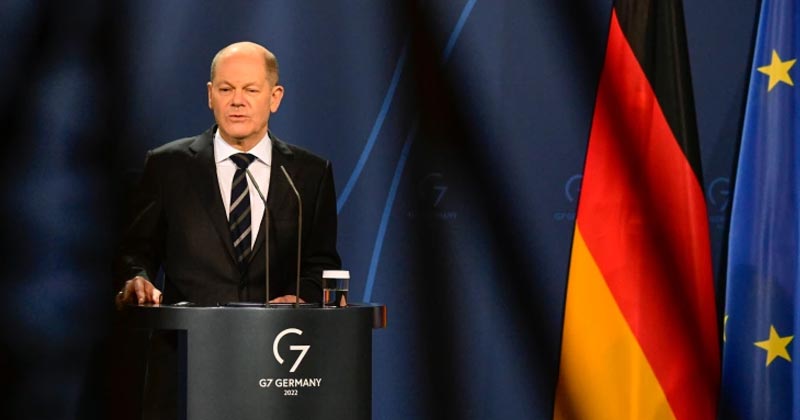Where 2022 is concerned in the realm of its history and bilateral ties, then in the simplest of ways the following about Germany can be considered its truth:
This is no ordinary year for Germany; it has been that year where the country has undergone tumult and a changing course of tide that is, quite honestly, reshaping its presence as the strongman of Western Europe.
But just how is that and what events in the recent past are responsible for such a change in the tide for the Olaf Scholz-led democracy?
Well, for starters, it must be recognized in no uncertain ways that 2022 has been the year where the beating heart of Western Europe got a new political luminary; Olaf Scholz’ appointment as the chancellor (i.e., supreme political leader of the state) meant that the Social Democrats found the highest representation in the Bundestag and not the Christian Democratic Union, whose most celebrated figure was Angela Merkel herself.
But is that all? Hardly!
Germany’s defence and energy policies readied to get a new change of direction with the country most commonly known for its automobile engineering muscle took a U-turn on its decision to supply lethal weapons to areas marred by conflict.
And even that wasn’t all; Germany took arguably speaking one of the most complicated decisions since the end of the great war by beefing up its defence spending and where the most latest development stands, then by suspending the controversy marred Russian gas project: Nord Stream 2.
Now having said that, in a policy that hasn’t really appeased Russia by any means, Germany decided to aid Ukraine, currently Russia’s enemy #1, by virtue of supplying weapons for warfare.
That decision, in the light of recent events, has become only more complex. So how is that and why is that?
Having initially backed out of the decision to supply powerful weapons to Ukraine in its bid to fight a war with Russia that’s now turned into a colossal battle, Germany has decided against that very stand.
That being told, what’s exactly happening in European heartland and why’s that happening particularly from a German perspective:
A recent report published on India’s revered NDTV had the following news insights to share that can help one understand the current state of tension:
Ukraine’s Foreign Minister Dmytro Kuleba on Tuesday slammed “disappointing signals from Germany” on the supply of more armaments.
“Not a single rational argument on why these weapons cannot be supplied, only abstract fears and excuses,” Kuleba said in a post on Twitter.
“What is Berlin afraid of that Kyiv is not.”
After initially refusing to provide Kyiv’s forces with lethal weapons at the outbreak of war, Germany has since upped its arms deliveries to Ukraine.
Piles of ammunition and rocket launchers have been sent to the Ukraine from arms-makers and the German army’s own stores, as well as dozens of tanks and howitzers.
Ukrainian forces have deployed weapons supplied by Western allies to great effect in their counter-offensive launched at the beginning of September, as they retook control of vast swathes of territory in the northeast and south of the country.
Germany had “delivered very efficient weapons that are making the difference on the battlefield at the moment”, Scholz argued on Monday.
To move on, one thing can be said for certain and it’s that Russia isn’t sporting a broad grin over what Germany, once its close economic ally, has done in these last few days!


